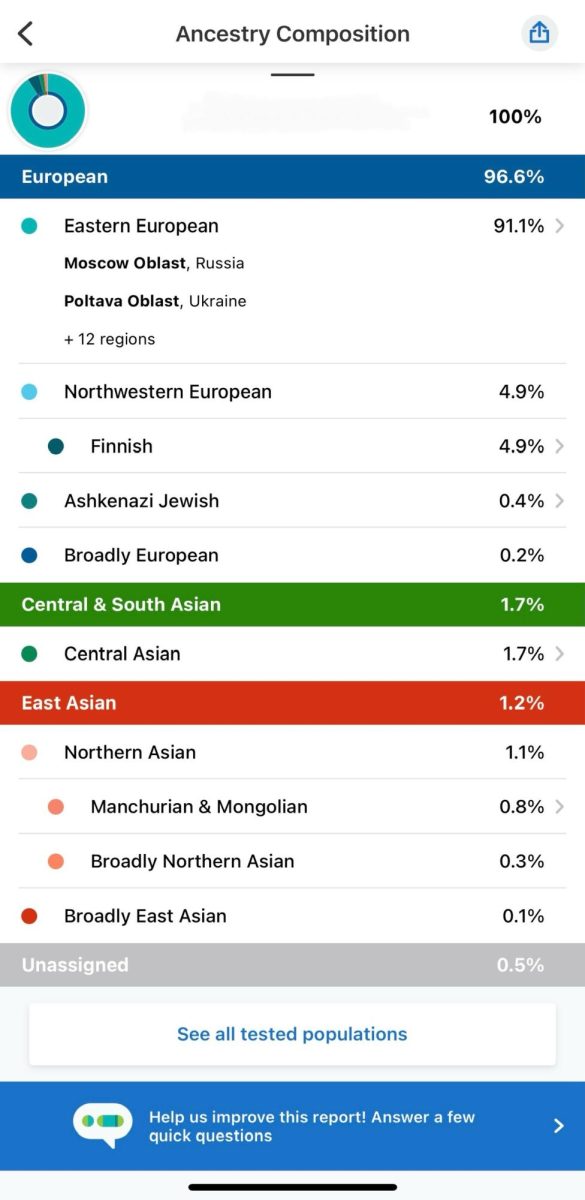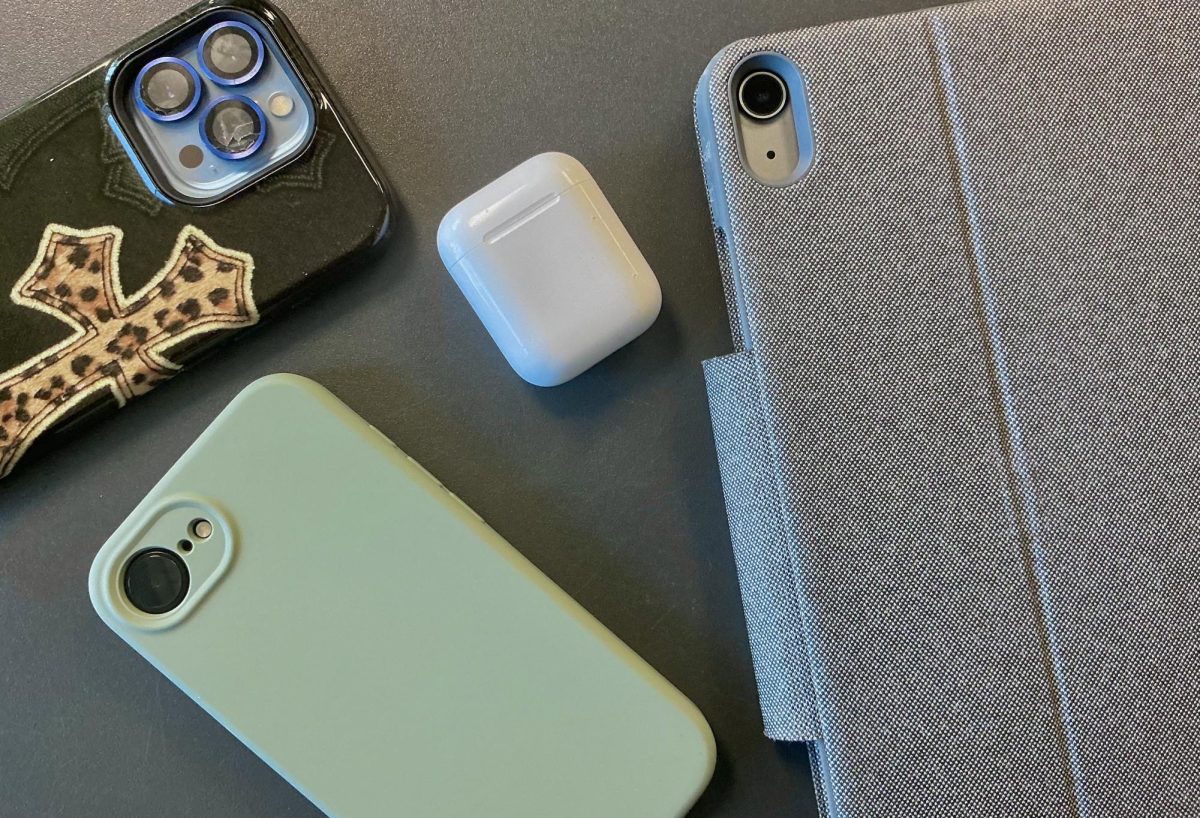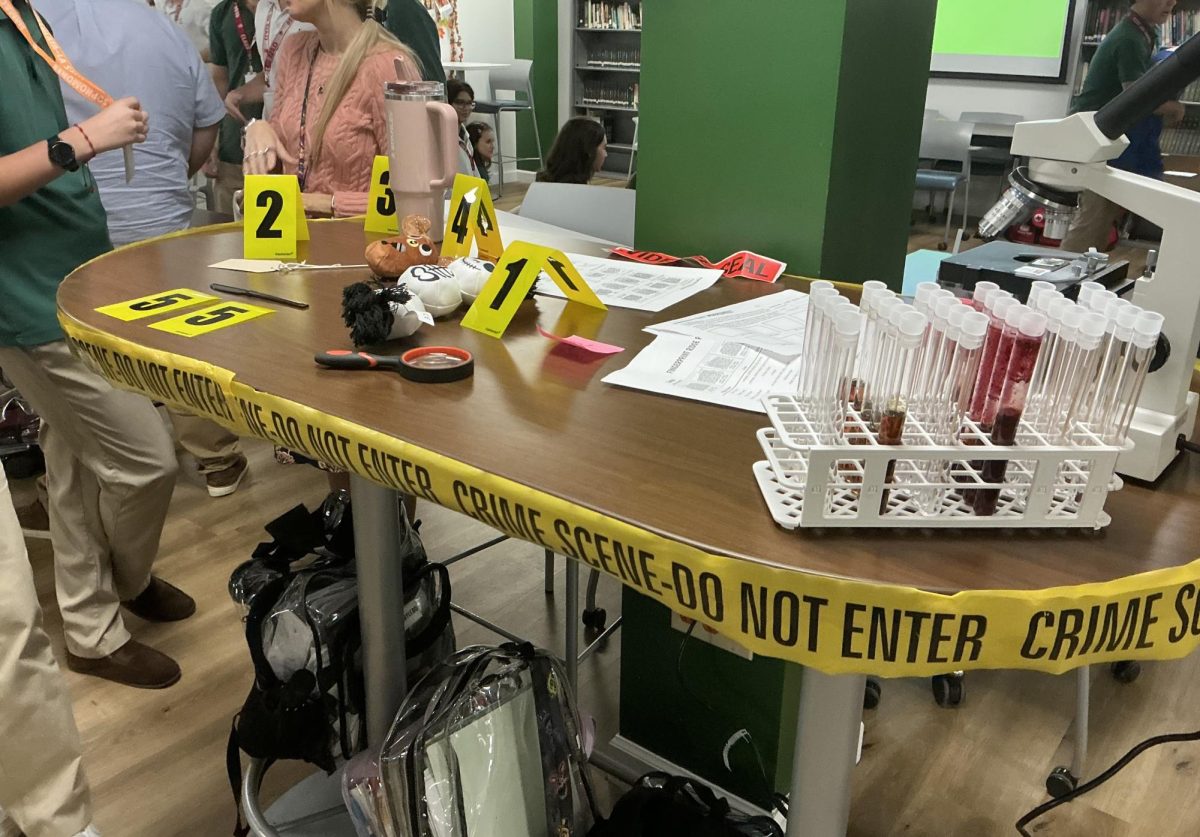Imagine clicking “I agree” on a DNA ancestry kit’s terms without knowing your genes might be shared with others. With over 26 million people sending off their DNA, we need to start asking- Who can access my genetic information?
Your DNA can do much more than just tell you where your family is from, and giving up an even a swab of your saliva can unleash a whirlwind of personal information. Just as you wouldn’t tell a stranger about your personal life, you most certainly wouldn’t share with them your genetic code, or would you?
Before we get into the dark side of DNA, let’s dive into what a test actually entails.
Katerina Garcia, a senior, shared her experiencing taking a DNA ancestry kit from the brand 23andMe.
“You cannot eat or drink anything 30 minutes prior to taking the test. The test does show your DNA relatives that have already taken the test, but not those who have yet to take it,” she explained.
“After I took the test, I didn’t feel that my information was super protected, but at the same time, I didn’t feel it was an immediate threat. In the past I had heard about people’s information being taken and things like identity theft happening. Even considering this info, I still wanted to take the test to learn more about my heritage and family history,” Kat elaborated.
DNA testing kits have become a mainstream device. Companies such as Ancestry DNA, 23andMe, and MyHeritage market their products towards encouraging people to discover, preserve, and represent their family history. It is true that there are many pros to these kits. For instance, DNA kits offer users a glimpse into their ancestry, health, and even personal traits- but at what cost?
The truth lies on the dotted line signed thoughtlessly by millions who partake in the use of ancestry kits. Most DNA companies retain rights to users’ genetic data. According to the Federal Trade Commission, once submitted, your genetic data may not be under your control.
Ms. Elisa Jilson from the FTC states, “Consumers need to be able to trust… that the company’s practices will protect the privacy of their DNA.”
The accuracy of a DNA test is also a factor that is questioned by many. After all, you wouldn’t want to take a DNA test and get the wrong information back.
According to VOX.com, there is “about a 99.9 percent accuracy for these arrays. But even with that high level of accuracy, when you process 1 million places in the genome, you might get 1,000 errors.”
Like any digital platform, ancestry databases can be targeted by hackers.
Mr. Dan Rafter of Norton LifeLock, an identity theft protection service, warns, “Your DNA data might be a tempting target for hackers,” potentially to be sold on the dark web or used by insurance providers and employers to make decisions that could impact consumers financially or professionally.
“Can insurance companies or employers legally use my DNA information?” asked senior Lucia Urdaneta.
The short answer is no, employers and insurance companies cannot LEGALLY use or access your DNA information. Unless you give them explicit consent, your information should be safe.
Overall, it is necessary to educate yourself about the potential dangers of DNA ancestry kits. Aside from the negatives, there are significant positives to these tests. For instance, you can learn more about your family history, educate yourself about potential genetic diseases, and create a deeper understanding of your own personal identity.
Is the risk worth it for you?
Are you willing to be among the millions of people worldwide who have taken a consumer DNA ancestry test?










